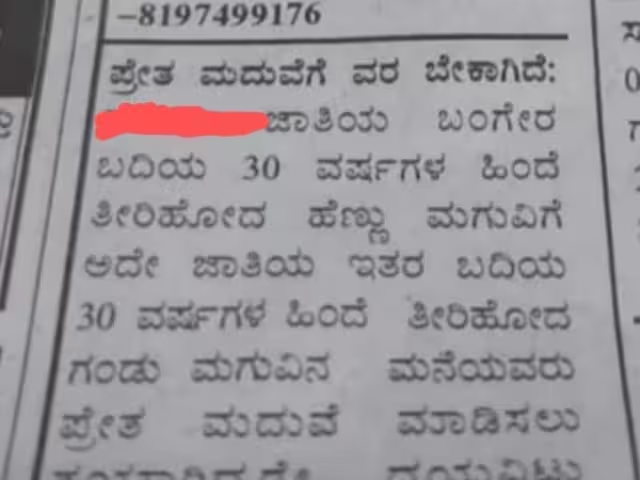Odisha method of reducing tribals’ burden
Eight months ago, fifteen Mankidia tribal people from Dengam village in Mayurbhanj were imprisoned for breaking into Similipal National Park and gathering bark from a tree known as “Danmari.” They went with 10 kg of bark, which is used to make traditional remedies, to sell to business owners in the area for Rs 20 per kilogram. The sarpanch from the area freed them out after they had been detained for nine days.

In 2022, Paramsingh Bhumij of the Bhumij tribe was caught and his motorbike confiscated in Kantabahal village, Sundargarh district, for attempting to distribute country liquor. Excise officers reportedly penalized him for having 30 liters of whiskey even though he claimed to be carrying just 16. His family lost sleep and suffered a financial setback of Rs 6,000 before he was freed on bail after eighteen days.
Relief for the thousands of scheduled tribes (ST) members, including the 15 impoverished Mankidias and Paramsingh, is now on the horizon. Chief Minister Naveen Patnaik’s directive caused the Odisha government to decide to remove 48,018 minor instances. Of these, the departments of Excise (36581 cases), Home (9,846 cases), and Forest & Environment (15,591) handle the cases.
Who is relieved?
It’s interesting to note that the departments have their own set of regulations and there is no legal term for “petty cases.” For example, excise has classified offenses as minor when they include the seizure of fewer than 20 litres of local beer, primarily Mahuli. 36,581 minor offenses were therefore found. These cases have been unresolved for three or four years. The state administration removed 60,000 minor offenses linked to excise that were filed around the state in 2021, including those involving Native Americans.
Sushil Kumar Lohani, principal secretary of the excise department, claims that since these are minor offenses, there is also little penalty meted out. He notes that the trial of these matters is time-consuming and burdensome for the department that must keep and provide case records, collect evidence, and so on in addition to the courts.
Principal Chief Conservator of Forests (PCCF), Debidutta Biswal, states that instances classified as petty under the Forest Department are those in which the value of minor forest product gathered is worth less than Rs 10,000.
While most of these incidents were reported after 2011, others date back over 20 years. Cases recorded in 2003–04 are included in the list. The majority of minor offenses include gathering forest products for one’s own use, such as firewood, bamboo, kendu, karanja seeds, siali fiber, mahua, and sal seeds. “Petty offence as such is not defined legally,” asserts Biswal. At the moment, a crime involving forest products up to Rs 5,000 is not reported to court since it is compoundable.
Actors for tribal rights believe that small infractions shouldn’t always result in case registration. Activist Giri Rao believes that despite DFOs’ authority to handle these situations, courts are consulted instead. “Hundreds of tribal people, ignorant of the consequences, spend years and a substantial sum of money fighting the case in court, even though the offence may only be worth Rs 100,” he claims.
Two and a half years ago, the state had withdrawn over 3,700 forest lawsuits against indigenous people. The government took similar action in 2004 and 2011 when the minor instances mostly concerned forest goods worth at less than Rs 100. In 2004, over 11,424 cases were withdrawn.
forests and the way of life for tribes
Tribals rely on the forest for both their traditional ways of life and means of subsistence. The sole source of income for the Mankidia tribe that live near to Similipal is siali, however it is forbidden to cut creeper in protected forests. As a result, the majority of the villagers gather tree bark because they think it has therapeutic qualities. Traditional healers and businesses who sell to the former are the main consumers of these barks. One of the fifteen Dengam villagers accused of the minor offense, Durga Mankidia, stated, “Depending on the quality, each kg fetches us between Rs 20 and Rs 30.”
Many also had to deal with situations involving the collecting of forest products worth less than Rs 100. In addition, the tribe members are requested to give up the bullock carts, bicycles, and motorbikes they use to transport the forest products. Similar to this, mahua flowers and the country liquor made from them are important in tribal culture as they are presented to their gods and even used as a form of payment.
Commissioner/secretary of the SC & ST Development department Roopa Roshan Sahoo says, “Dropping such cases is a huge relief not just for the judicial system but also for the tribals who use the forests to eke out their livelihood.”
Lohani concurs. He notes that it is impossible to dispute the reality that country liquor plays a significant role in tribal life and yet, despite this, they are subjected to persecution.
President Droupadi Murmu brought up the problem of minor offenses and the predicament of impoverished tribal people incarcerated in Odisha and Jharkhand for these offenses in her first Constitution Day speech in November of last year.
Rao believes that these laws have a colonial bent. Although gram sabhas are authorized under PESA to assist in case resolution, this is not the case even today.
“Even now, indigenous women who gather mahua flowers from the jungle are unaware that they need the collector’s consent to store more than five kg of flowers in their houses. The decision to dismiss charges is commendable, but instead of only prohibiting tribal members from collecting MFPs, the government should educate them about the legal ramifications and seek to establish other means of subsistence, the speaker stated.
Definition of a minor offense
When fewer than 20 liters of local beer are seized, the excise agency classifies the offense as small.
When the value of small forest products gathered is less than Rs 10,000, the Forest Department handles petty cases.
48,018 minor cases against Native Americans will no longer be pursued by the state.







